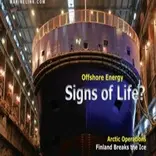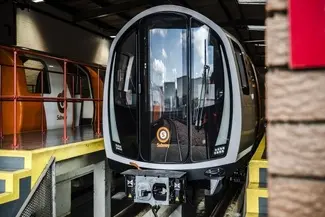IMO: Shipping emissions, invasive species still ‘unfinished business’

At the ICS Annual Shipping Conference, IMO Secretary-General Kitack Lim highlighted two important issues on the industry’s current agenda, reducing harmful emissions and dealing with invasive species, stressing that, despite a huge amount of progress, both represent “unfinished business”.
Firstly Mr Lim noted that despite a number of measures adopted by IMO and designed to control shipping emissions, steps are being taken for further measures to be considered. The mandatory collection and reporting of fuel-oil consumption data for ships of 5,000 gross tonnage and above will provide a firm statistical basis for an objective, transparent and inclusive policy debate in the MEPC. And IMO Member States have told the world they will produce a comprehensive strategy for reducing greenhouse gas emissions from ships, beginning with an initial strategy to be adopted next year.
“Next year really will be a time when the world will expect the IMO Member States to deliver a clear vision as the first stage of the approved roadmap. I know that you in the industry are also expecting clarity on this.”
Further, Mr Lim praised the 2020 sulphur limit ‘as an excellent example of IMO’s regulatory work having a profound and beneficial impact far beyond the shipping industry.’
Moving to ballast water management, he said that the MEPC in July was a source of great encouragement, as it was able to adopt a practical and pragmatic implementation schedule for ships to comply with the IMO Ballast Water Management Convention. This, according to Mr Lim, means that a problem identified more than 30 years ago as one of the major global threats to the marine environment is being actively addressed.
“…Amid all the interest about when ships should comply with the D2 standard, it should not be overlooked that all ships to which the Convention applies are required to manage their ballast water to avoid the transfer of potentially invasive species from the day of entry into force. Implementation of the Convention began straight away, and the requirement to exchange or treat ballast water applies to both new and existing ships – no exceptions, and no delays.”
Concluding, IMO Sec-Gen suggested that thanks to the opportunities afforded by new technology, shipping is on the brink of a new era. The technologies emerging around fuel and energy use, automation and vessel management, materials and construction and so many other areas, will lead to new generations of ships that bring substantial improvements in all the areas that IMO regulates and the use of data holds the key to a safer and more sustainable future for shipping.
“But technological advances present challenges as well as opportunities, so their introduction into the regulatory framework needs to be considered carefully. We need to balance the benefits against safety and security concerns, the impact on the environment and on international trade, the potential costs to the industry and, not least, their impact on personnel, both on board and ashore.”
“It is absolutely right and proper that IMO should take a proactive and leading role in these issues, given the rapid technological developments surrounding them.”















![AIRBUS A380 [MORE THAN 600 PASSENGER’S CAPACITY PLANE]](https://cdn.tinn.ir/thumbnail/4jCp4EQvCU0b/IjHVrSYQrIAqIzXuTzADR7qLYX4idQT4nfq__26E5SCUPLMqfhWkWajvuO9Wfq1ql1TjV4dhkrHliNQU82kMpo2NNftT_NGEwHc9KXtN_rk731bmifa2IQ,,/airbus-a380-structure1.jpg)

Send Comment